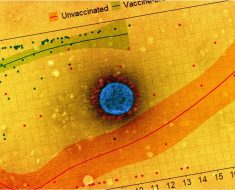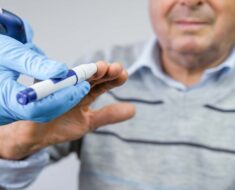Children unvaccinated against measles are fuelling global outbreaks, with more than 110,000 measles cases being reported worldwide in the first three months of 2019, up nearly 300% over the same period last year, Unicef said on Thursday.
This has led to a 30% spike in measles cases worldwide since 2016, taking cases to 6.7 million and deaths to 110,000 in 2017. India confirmed 55,399 measles cases in 2018.
Globally, each year around 21.1 million children on average don’t get the first dose of the measles vaccine, which has led to around 169 million children remaining unvaccinated between 2010 and 2017, according to Unicef.
Measles is a highly infectious virus that causes death and debilitating complications, including encephalitis (swelling of the brain membranes), severe diarrhoea, pneumonia, ear infections and permanent vision loss.
India has 2.9 million children unvaccinated against measles, the second highest number after Nigeria, which is home to 4 million children not vaccinated against the disease, said Unicef.
The measles-rubella vaccine is safe and has saved at least 21 million lives since 2000, according to the World Health Organization (WHO), but fake news campaigns spread by anti-vaxxers — those who oppose vaccination — have led to people saying no to vaccination even in countries that have eliminated the disease.
Immunisation coverage must be at least 95% to achieve ‘herd immunity’, the threshold over which unvaccinated people in a community are protected, according to WHO. “It is critical not only to increase coverage but also to sustain vaccination rates at the right doses to create an umbrella of immunity for everyone. The measles virus will always find unvaccinated children. If we are serious about averting the spread of this dangerous but preventable disease, we need to vaccinate every child, in rich and poor countries alike,” said Henrietta Fore, Unicef executive director, in a statement.
The US, which eliminated measles in 2000, tops the list of high-income countries with the most children not receiving the first dose of the vaccine between 2010 and 2017, which prompted the American Medical Association last month to urge big social media and technology companies such as Amazon, Facebook, Google, Twitter, Pinterest and YouTube, to stop anti-vaccine groups from spreading misinformation on their platforms.

“Since launch of the Measles Rubella (MR) vaccination campaign in India in February 2017, 305 million children in 32 states/ UTs using the Serum Institute of India vaccine is WHO pre-qualified for its quality and safety and used the world over, but the campaign has been stalled by misinformed parents in some parts of India, including Delhi,” said a health ministry official who did not want to be identified.
“The MR vaccine being used in the campaign as well as for Routine Immunization, is very safe and effective against measles. It is made in India and is exported for use world over. Two doses of this vaccine provides more than 95% protection against the disease that has been eliminated in four countries (Bangladesh, Bhutan, DPR Korea and Timor Leste) in WHO’s South Asia region and transmission of the virus is likely to have been interrupted in Sri Lanka,” said Dr Poonam Khetrapal Singh, regional director, WHO South East Asia Region, which is holding a meeting of the Regional Verification Commission for Measles Elimination and Rubella Control to review progress in the battle against measles.
The global coverage of the first dose of the measles vaccine was reported at 85% in 2017, with the coverage for the second dose being at a lower 67%. In high income countries, while coverage with the first dose is 94%, coverage for the second dose drops to 91%, according to the latest data.
First Published:
Apr 25, 2019 07:44 IST
Source: Read Full Article





